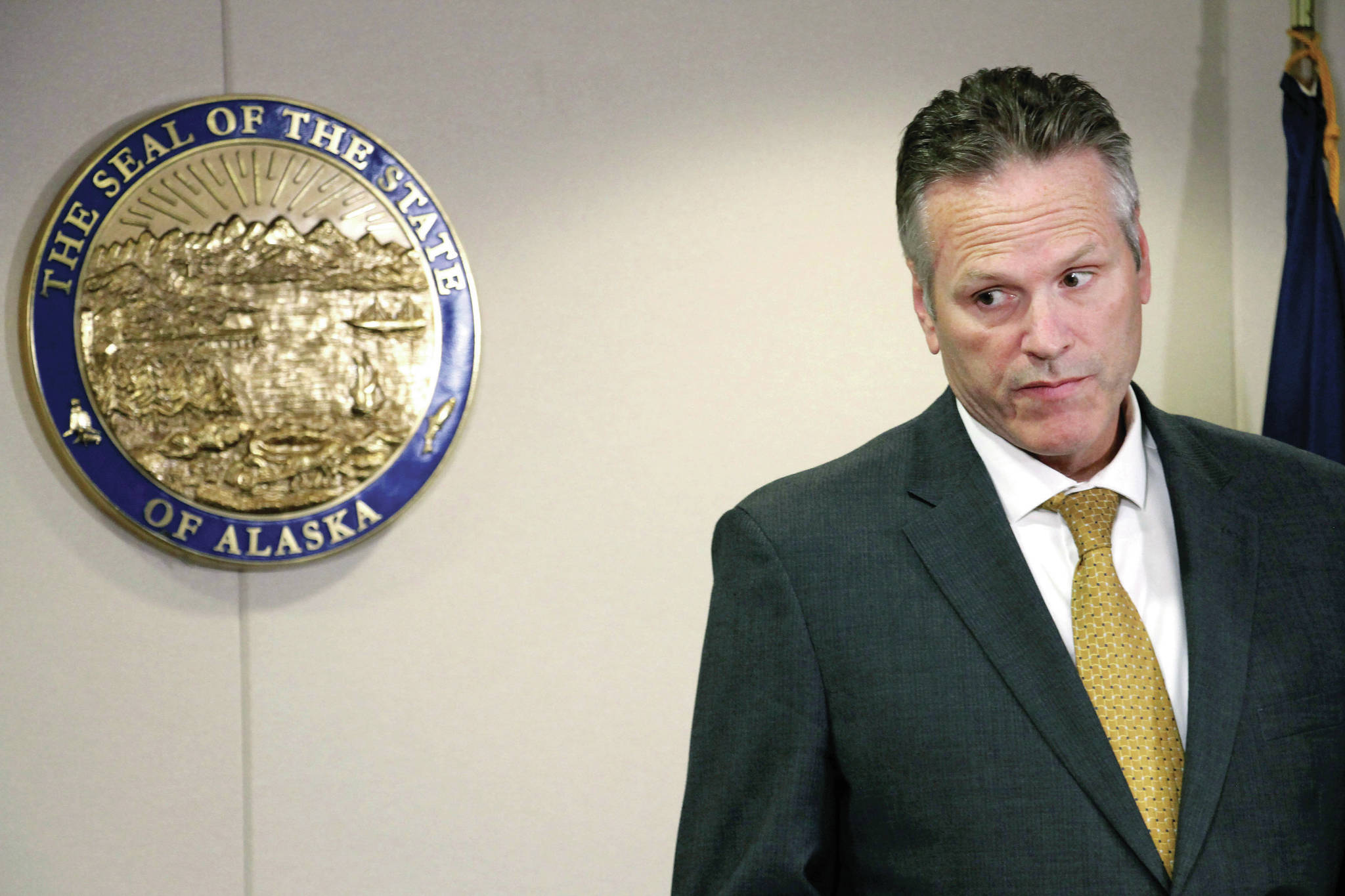JUNEAU — The Alaska Supreme Court ruled Friday that an effort aimed at recalling Republican Gov. Mike Dunleavy from office can proceed, a movement initially fueled by public outrage over spending cuts he’d proposed.
The court had previously allowed the Recall Dunleavy campaign to proceed with a second signature-gathering phase while it heard the case. The campaign must gather 71,252 signatures in a bid to force a recall election. It has reported gathering more than 34,000 signatures so far.
According to the National Conference of State Legislatures, just two governors have been recalled by voters — California Gov. Gray Davis in 2003 and North Dakota Gov. Lynn Frazier in 1921. Wisconsin Gov. Scott Walker withstood a 2012 recall challenge.
Dunleavy, who took office in December 2018, has argued the recall effort is political. He agreed to reverse or moderate some of the vetoes that spurred outrage. His administration this year requested additional funds for Medicaid after the level of cuts sought last year didn’t pan out. The court’s brief written order affirms a Superior Court decision; a full opinion explaining the order is expected later. Justice Craig Stowers dissented with part of the decision.
Claire Pywell, the campaign’s manager, called Friday’s decision huge. “We know that we still deserve a governor that follows the law and that shares our values and acts in our best interests,” she said. “And it’s go time.”
Attorney General Kevin Clarkson, in a statement, said the court “ignored Alaska’s constitutional history and has effectively rewritten our Constitution and statutes to adopt no-cause political recall. By the Court’s decision, from this point forward any elected official will be subject to recall for virtually any reason.” Clarkson is a Dunleavy appointee who was confirmed by the state Legislature.
Jeff Turner, a Dunleavy spokesperson, said the governor’s communications office does not comment on the recall issue.
The state’s elections director in November rejected the recall application, citing an attorney general opinion that found the reasons listed for recall were “factually and legally deficient.” Superior Court Judge Eric Aarseth later ruled all but one allegation against Dunleavy could proceed. The Department of Law appealed.
Grounds for recall in Alaska are lack of fitness, incompetence, neglect of duties or corruption. The recall campaign said the governor violated the law by not appointing a judge within a required time frame, misused state funds for partisan online ads and mailers and improperly used his veto authority to “attack the judiciary.”
The group also said Dunleavy mistakenly vetoed more funds than he told lawmakers he intended to cut and that the action could have cost the state Medicaid dollars if not corrected.

